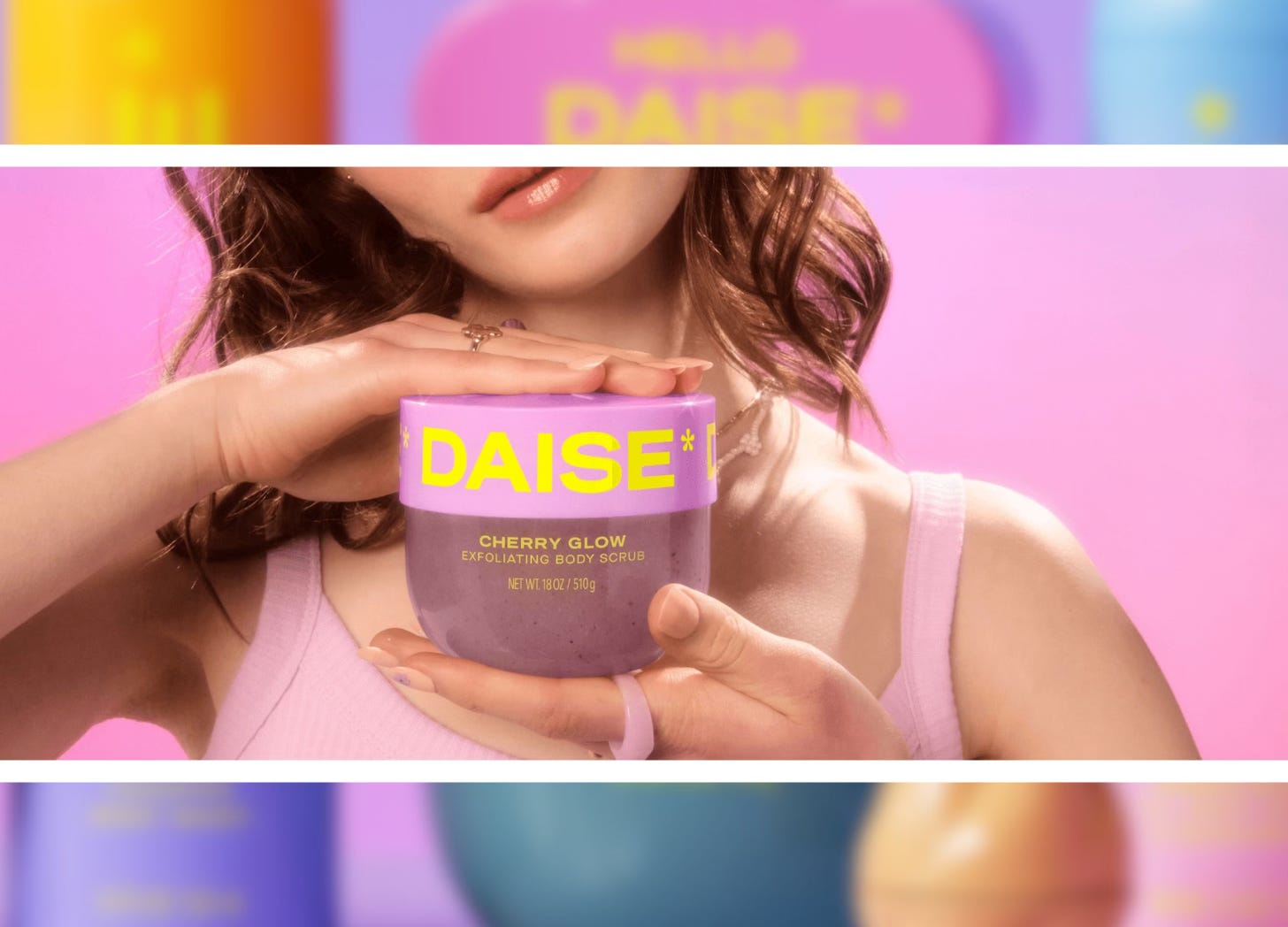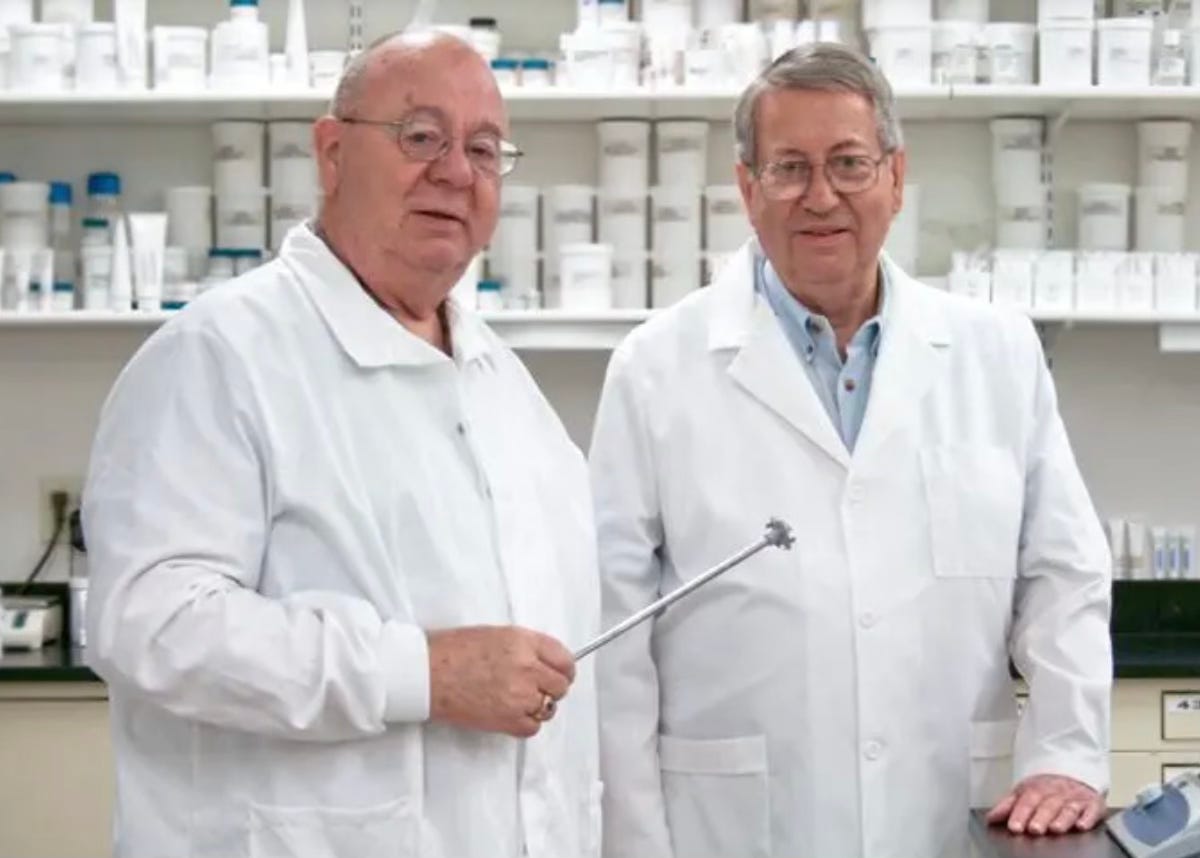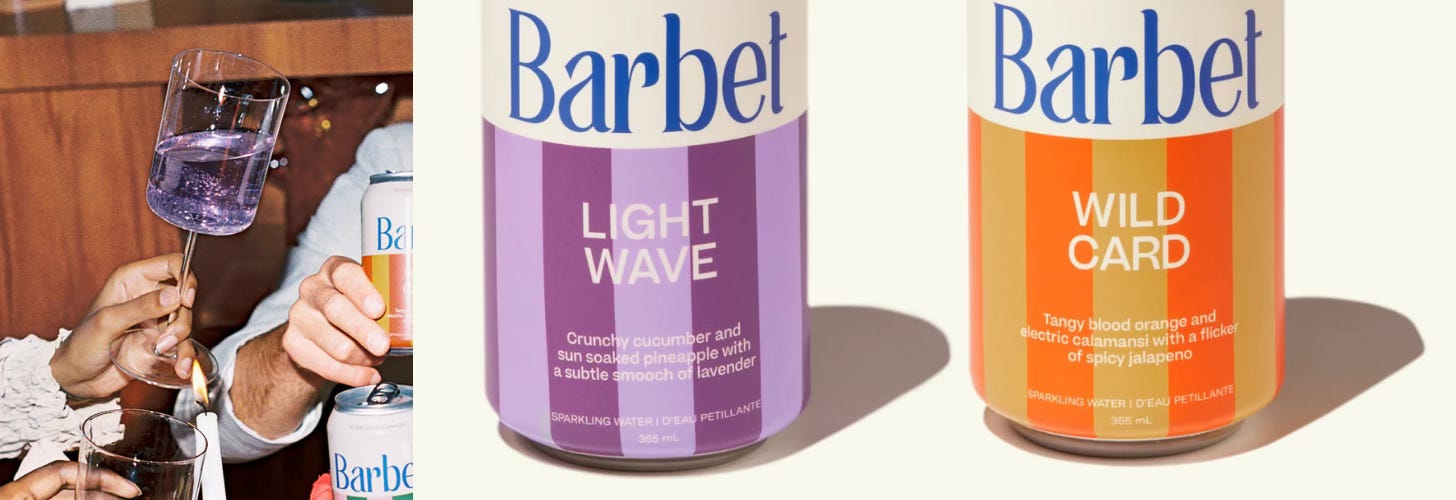Vowel Takebacks. 'Zalpha' Knows Best. Lowkey Beauty.
And will next-gen Trotter's be "Trotter's"?

From London (Mia)
Some brand evolutions are strategic. Others are survival tactics. Abrdn’s decision to reclaim its vowels and rebrand as Aberdeen Group falls into the latter. The British investment firm’s 2021 rebrand—stripping its name of vowels in a bid to appear modern and ‘ownable’—felt like more of a punchline rather than a power move. And despite years of defending its name, the company, under new CEO Jason Windsor, has now quietly admitted what the market already knew: a name no one understands is a brand no one trusts. After years of outflows and job cuts, Aberdeen Group is refocusing on stability and trust under a brand name that doesn’t require an explainer. And the market is responding: shares jumped 15% following the announcement, according to Bloomberg. For marketers, the lesson is simple: brand recognition isn’t something you disrupt for the sake of it. A name is a contract with customers, a shorthand for trust, and, as Aberdeen just learned, something that’s a lot harder to rebuild once broken.
Gen ‘Zalpha’ are the new beauty authorities. For decades, beauty advice has traditionally flowed from parent to child—mothers introducing their kids to their first skincare routines, fathers passing down shaving traditions. But the script has flipped and beauty is no longer a one-way conversation. Nearly 40% of parents now take skincare advice from their children, as Gen Z and Gen Alpha spend more time online, absorbing trends, product insights and expert tips at a pace no previous generation could match. This hyper-connected, beauty-savvy generation is shaping their own routines while influencing purchasing decisions across their families. Whether it’s introducing their parents to a dermatologist-approved brand or convincing them to try the latest viral product, Gen Zalpha is rewriting the rules of beauty consumption. Our kids now wield influence far beyond their own age group, shaping industry trends and redefining how entire households shop. Brands that recognize and embrace this generational shift and two-way dialogue will be the ones leading the future of beauty.
Speaking of beauty, what’s up with all these brands mis-naming their new product launches? Charlotte Tilbury, your Unreal Skin Sheer Glow Tint Hydrating Foundation Stick is not a foundation, it’s a highlighter (loving the helpful application videos on the website, though). Drunk Elephant, this is a face wash, not a cream cleanser. And Rhode’s viral Peptide Lip Shape is a lipstick in stick form, not the lip liner it claims to be. These mis-named launches blur the lines between categories and create unnecessary confusion and frustration for consumers in the process. When a product’s name doesn’t align with its function, it forces people to do extra work to decode what they’re actually buying. Worse, it risks disappointment when the product doesn’t perform as expected. Remember: clarity isn’t just a courtesy, it’s a competitive advantage.
I’ve been working in tech a lot lately. In partnership with the brilliant women at Ladyship, I developed the strategy and copy for Hitachi-owned GlobalLogic’s new AI solution. It’s been an interesting switch from crafting crisp packet copy (though the latter certainly gets the most cred from my kids).
From Ellen (Chicago)
These guys are responsible for one of the hottest products on the market today.

Conrad Thompson and Ed Mansfield, pharmacists turned founders who created the original VaniCream in 1975. Bain & Company recently came out with its ninth annual Insurgent Brands list and the story tracks for the vast majority of the 120 honorees except one— VaniCream. I don’t doubt VaniCream meets all of the criteria to make the list:
“We define insurgent brands as those that have generated more than $25 million of annual revenue in tracked channels, have grown more than 10 times their category’s average growth rate over the past five years, and have maintained positive growth over the past two years while remaining independent or having been acquired by a large consumer packaged goods company only within the past two years.” —Bain & Company
But it’s ‘not like the others’ (if you know what I mean). VaniCream has been around since the late ‘70s. In fact, my dad first introduced me to it about 25 years ago when he brought home a tub from Costco. In contrast, most other insurgent brands are relatively new to market, have a roster of TikTokers on the payroll, and had their first big break in mass retail this decade (which, by the way, likely accounts for a good portion of their rapid success). Not VaniCream. So, what’s up?
Patience and consistency. VaniCream’s original product is solid. It established a set of innovation criteria and consumer expectations in the marketplace that the brand has consistently upheld, even as they extended into new products and pack types. No doubt these extensions— particularly the brand’s 2024 launch into Baby— drove recent incremental consumption and growth for the brand. Still, my bet is their insurgency is mostly OG-driven. The original VaniCream Moisturizing Cream is finally catching a wave of consumer interest in affordable, accessible, all-people, all-natural (ingredients I can spell) skincare. And, they’re ready and waiting with widespread distribution, retail credibility, and the allure of being a back-to-basics, ‘my mama told me’ solution (or in my case, ‘my dad told me’)— like this. Also, a buzzy 2024 Super Bowl ad by their lead competitor, CeraVe, didn’t hurt either (ironically). It re-revved the category and helped to set in motion the aforementioned consumer interest wave. (Sorry, CeraVe, sometimes that’s the way the cookie crumbles.)Mia, don’t I know it! I could write a book with all of the beauty tips I’m getting my Gen ‘Zalpha’ daughter and her friends. Honestly, some I put in the “uh-huh— let’s talk again in six months” bucket (ahem, Sol de Janeiro), but the Daise craze has caught my attention. This brand gets a gold star! Creator, Jaimee Lupton (also co-founder of MONDAY Haircare), likely leveraged learnings from MONDAY’s rollout and the established retail relationships it afforded her to get Daise to mass market quickly. The brand launched in Ulta in December 2024 and hit center-aisle in Target in February 2025. The products are high quality and innovative— hello, whipped body wash! Palette, packaging, naming, digital presence— all superb. Usually when I see brands use ‘teen speak’ to appeal to the younger set, I roll my eyes, but not with Daise. “Lowkey” and “never not” are just right… just enough.
Canadian no-alc bubbly brand, Barbet, is steeped in charm. I’m not one to be easily moved by packaging copy, but these words got me. “This brand cares about the details,” I thought.
In a category as saturated as low/no-alc RTDs, the little things now count. No longer is the meta concept of “elevated taste, alcohol-free” up for grabs. To survive, brands have to deliver on the details through-and-through, from story and aesthetic to final sip. I think Barbet is on its way. Even this delightful blog post about the brand’s affinity for stripes is done with cleverness and care.
Trotter is returning to 816 W. Armitage, but will it be Charlie Trotter’s? Anyone with an ounce of foodie blood who has walked the 800 block of West Armitage in Chicago in the past 11+ years has probably tipped their hat to the quiet brick home with the “T” that stands between Lori’s Shoes and SEE Eyewear. West Armitage remains a bustling, country club-posh street in the heart of one of Chicago’s most affluent neighborhoods, but the restaurant that once made it a destination, Charlie Trotter’s, has (mostly) stood vacant since 2013. Charlie’s son, Dylan Trotter, reopened the restaurant for a brief and electrified stint earlier this year with famed chef and Trotter-mentee, Grant Achatz. Some considered it a test run for what’s to come— a rumored permanent revival of the old Charlie Trotter’s by year-end. But can the brand really stand apart from the man? It’s the age-old question of any self-titled entity. Even Charlie’s son, Dylan, seems to think, “No way.” He’s supposedly still undecided on a name and full-fledged concept for the future of the dining spot, but I think it’s safe to say that— to him— Charlie Trotter was his dad (not a brand), and there is no “Charlie Trotter’s” without him.
In case you’re wondering, our mentions and links are never sponsored.






